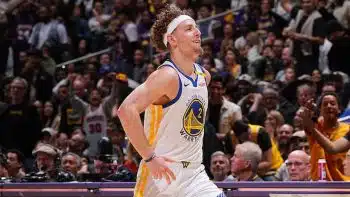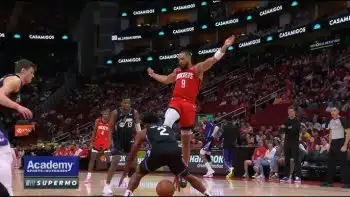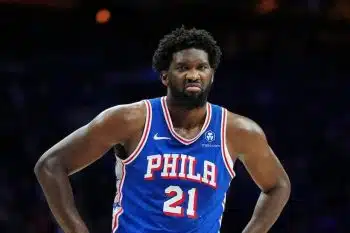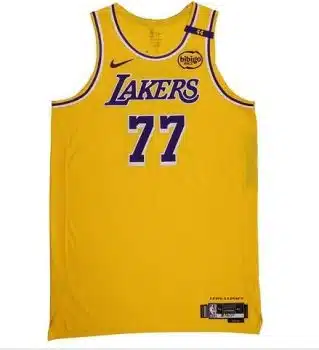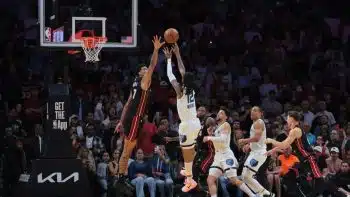NBA
NBA Draft Lottery Should Never Reward Losing
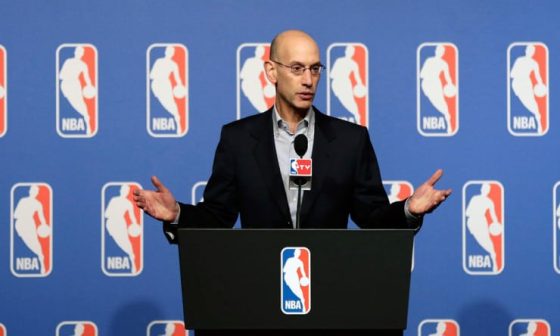
At the 2014 NBA Board of Governors meeting, an NBA Draft Lottery reform proposal was defeated after receiving only 17 of the 23 votes needed to pass. NBA commissioner Adam Silver bemoaned the “corrosive perception” that “tanking” — losing games on purpose — was the quickest path to improvement for teams, with the Philadelphia 76er’s “process” as a prime example.
According to NBA.com, the defeated proposal had two goals, only one of which seemed designed to reduce the perception that the lottery system rewards losing.
“The reform proposal presented by the league’s competition committee would have drastically reduced the worst team’s odds of winning the lottery while also increasing the chances that the teams with the best record in the lottery field would jump up to the top of the board.”
So, in essence, the league’s proposal would have made it less likely that the team with the fewest wins would get a top three pick, while increasing the odds that a team that barely missed the playoffs would jump into the top three. The competition committee apparently felt that Cleveland’s “instant rebuild,” made possible by winning the top overall pick in three out of four drafts from 2011 to 2014, was a scenario that should be repeated. The Cavaliers won the lottery in 2011 despite only a 2.8 percent chance of moving up, won in 2013 with the league’s third-worst record, and improbably won again in 2014 despite only a 1.7 percent chance.
The proposal’s defeat was a strong indicator that the league’s owners on average were less eager to see that scenario happen again. While evening the odds among the league’s worst teams would certainly discourage teams from bottoming out for the sake of draft position, increasing the odds for a fringe playoff team to move into the draft’s top three might encourage a team to tank out of an unfavorable playoff seed to play the lottery instead.
In 2014, the Phoenix Suns missed the playoffs with a 48-34 record in the West while the Atlanta Hawks made the playoffs in the East with a 38-44 record. For missing the playoffs, the Suns got a lottery pick while a Hawks team with 10 fewer wins picked after them. That same year, Curtis Harris made a compelling argument on ESPN.com that rewarding near-50-win teams like the Suns with a higher draft pick contributed to the long-term weakening of the Eastern Conference compared to the West.
“The NBA draft system often unintentionally (but systematically) awards decent West teams slightly better draft picks than similar teams in the East. It’s a system designed to help the weak get stronger, but it’s rewarding the stronger conference almost every season.”
Stop Rewarding Losing
If the NBA wants to rid itself of the perception that it rewards losing, comprehensive lottery reform is needed which addresses the issue on multiple levels. Firstly, the league should abandon its quest to reward teams that barely miss the playoffs with a much greater chance to move to the top of the lottery. Had lottery reform passed in 2014, a team might find itself in the final game of the season with a decision between an intentional loss – and enhanced lottery odds – or winning its way into a first-round matchup against a dominant first seed such as the Warriors.
What follows is a proposal that discourages the NBA’s worst teams from partaking in a race to the bottom for the sake of draft position while simultaneously ensuring that teams on the fringes of the playoffs are motivated to win as many games as possible. Firstly, no team with a better record than the worst playoff team should be in the lottery. Using 2014 as an example, both the 48-win Suns and 40-win Timberwolves would be excluded from the lottery since they had more wins than the 38-win Hawks that finished eighth in the East.
All teams outside the lottery would pick in reverse order of record, regardless of whether the team made the playoffs. Thus, the 2014 Suns would have picked after the Hawks, Hornets, Nets and Wizards, all teams in the East that made the playoffs but finished with a worse record than the Suns. The Suns would be granted a tie-breaker over the Bulls, which finished with an identical 48-34 record but made the playoffs. Under this system, the motivation for the Suns to make the playoffs is dramatically increased since missing the playoffs would not result in improved draft position. The raised stakes would greatly increase the drama of the seasons’s final days.
Secondly, among teams that remain in the lottery, the odds for moving into the top three should be evened out so that there’s less motivation to lose as many games as possible to improve draft position. Phoenix GM Ryan McDonough advocated this idea to Arizona Sports 98.7 FM after the Lakers and 76ers moved ahead of the Suns in this year’s lottery.
“I would like to see the odds be smoothed out a little bit,” said McDonough. “The more the league could add a little variance in there and de-incentivize losing, I think that would be good for the good of the league and I think it’d be a nice change going forward.”
Rather than the current system that gives the team with the worst record a 25 percent chance to stay in the top three with the odds scaling down to just 1.8 percent for the team with the best record, those odds could be made much more even. Additionally, the current system allows the team with the worst record to fall only as low as the fourth pick, the team with the second-worst record as low as the fifth pick and third-worst as low as the sixth pick. By allowing the team with the worst record to have a greater range to fall — for instance, as low as the seventh pick — you add variance that makes it much more difficult to plan out a multi-season tanking strategy.
Finally, two optional rules that should be considered among ownership to see if they gain traction could include a rule precluding teams from winning the first overall pick in consecutive seasons and a rule randomizing the number of teams that participate in the lottery. The former rule would prevent the scenario in which the Cavaliers won the top overall pick in three out of four drafts. The latter rule, by randomizing the number of teams that are allowed to participate in the lottery, would force teams to decide sooner if they wish to pursue a rebuilding strategy or compete for a playoff spot.
Currently 16 teams make the playoffs each season and 14 participate in the lottery. Under the latter rule, a random number between one and three of the teams with the worst records that make the playoffs could be added to the lottery participants. By randomizing the number of teams that participate in the lottery, it makes it very difficult to determine how many losses will be needed to get into the lottery. Thus, teams are more likely to decide early on if they are rebuilding or trying to compete in a given season.
Silver considers it corrosive that NBA fans think losing is the easiest path to improvement for their teams. These proposals would help ensure that teams with a chance to make the playoffs are under greater pressure to do so, and that there’s no longer a race to the bottom among the teams with the worst records. Losing should never be rewarded, and never be viewed as a positive strategy.
